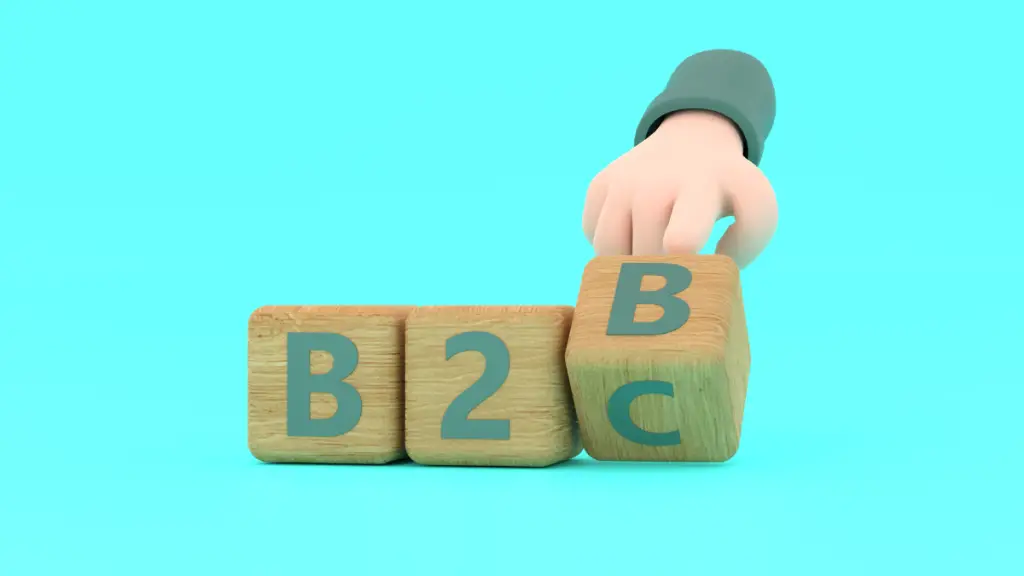Most people hear B2B and B2C and need clarification. In this article, I will explain these brands’ differences and discuss their similarities.
B2B versus B2C brands it’s like comparing apples to oranges. B2B is a shorthand for Business-to-Business, which involves companies selling products or services to other companies. At the same time, B2C, or Business-to-Consumer, revolves around selling directly to consumers (WE).
Regarding B2B, transactions often involve larger quantities and higher values, focusing on fulfilling the needs of another business. Conversely, B2C transactions are more personal, targeting individual consumers and their preferences.
Differences between B2B and B2C Brands:
1. Audience and Targeting:
B2B brands typically target a niche audience of businesses and professionals. They focus on building relationships and offering solutions tailored to specific industry needs. For instance, software companies like Salesforce cater to businesses seeking CRM solutions.
However, B2C brands cast a wider net, targeting individual consumers across various demographics. Think of companies like Apple or Nike, which aim to capture the attention and loyalty of everyday shoppers with their products and ensure they get the most out of them.
2. Purchase Process and Decision-Making:
B2B purchases involve a more complex decision-making process, often requiring multiple stakeholders and thorough research. Companies invest time and resources to evaluate long-term benefits and ROI before purchasing. Take enterprise software like SAP, where decisions involve various departments and stakeholders due to its impact on operations and finances.
On the other hand, B2C purchases are typically more impulsive and emotion-driven. Consumers make decisions based on personal preferences, trends, and immediate needs. Consider fashion brands like Zara, where consumers decide to buy based on style, price, and current fashion trends.

3. Marketing and Messaging:
B2B marketing focuses on demonstrating expertise, reliability, and the value proposition of their products or services. Content marketing, case studies, and industry events are crucial in building credibility and trust among B2B buyers. Companies like IBM grow in showcasing their expertise through thought leadership content and industry partnerships.
Meanwhile, B2C marketing aims to evoke emotions and create memorable experiences. Advertisements, social media campaigns, and influencer collaborations are common strategies used by B2C brands to connect with consumers on a personal level. Coca-Cola’s iconic holiday campaigns and Nike’s inspirational ads resonate with consumers on an emotional level, driving brand loyalty.
4. Sales Cycle and Relationship Building:
B2B sales cycles are typically longer and more relationship-driven compared to B2C brands. Building trust and nurturing relationships are paramount in B2B interactions, as companies often engage in ongoing contracts and partnerships.
For instance, a B2B software provider like Microsoft Azure invests in cultivating long-term relationships with enterprise clients through dedicated account management and customized solutions.
5. Product Complexity and Customization:
B2B products or services are more complex and customizable to meet businesses’ specific needs.
Companies often offer tailored solutions, extensive product configurations, and specialized features to address their clients’ unique challenges. For example, companies like Boeing offer customized aircraft solutions to airlines, incorporating various specifications and features to optimize performance and efficiency.
Similarities between B2B and B2C Brands:
1. Brand Identity and Positioning:
Both B2B and B2C brands prioritize building a strong brand identity and positioning in the market. Establishing a brand identity is crucial for long-term success, whether communicating values, fostering trust, or creating memorable experiences.
Companies like Google and Amazon excel in maintaining consistent brand messaging across B2B and B2C channels.
2. Customer Experience and Satisfaction:
Regardless of the target audience, delivering exceptional customer experience is essential for B2B and B2C brands.
From pre-sales inquiries to post-purchase support, companies strive to exceed customer expectations and foster long-term relationships. Brands like Salesforce and Amazon prioritize customer satisfaction through personalized interactions and seamless service delivery.
3. Innovation and Adaptability:
B2B and B2C brands prioritize innovation and adaptability to stay relevant in markets. New technologies, product enhancements, or innovations are vital to maintaining a competitive edge.
Companies like Tesla in the B2C space and IBM in the B2B sector continually innovate to meet consumer and industry demands.
4. Brand Loyalty
Fostering brand loyalty is a common goal for B2B and B2C brands regardless of the target audience. Building a loyal customer base and turning them into brand advocates can help impact long-term success and market share. Companies like Microsoft in B2B and Starbucks in B2C do well in building strong brand communities and leveraging customer loyalty programs to enhance engagement and retention.
Conclusion
Understanding the differences between B2B and B2C brands is crucial in crafting effective strategies and fostering meaningful customer connections. While they may operate differently, both B2B and B2C brands share common goals of delivering value, building trust, and driving growth in their respective markets.
Success lies in the fact that each brand can understand the unique needs of its consumers while giving them the best products without compromising its core brands and values.
In other words, B2B exists mainly for businesses, i.e. A business providing for another company. In contrast, B2C exists because of the US customer, i.e. businesses providing for the consumers.






